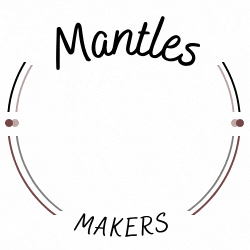The world of casino gaming is filled with various strategies and techniques that players can use to increase their chances of winning. Among these, two popular methods are flat betting and progressive betting. While both approaches have their advantages and stake-casino.top disadvantages, it’s essential to understand which one is more effective in the long run.
The Fundamentals of Flat Betting
Flat betting involves placing a fixed amount of money on each bet, regardless of whether you win or lose. This strategy is simple to implement, as you don’t need to worry about adjusting your bets based on your winning or losing streaks. The primary advantage of flat betting is that it allows you to maintain a consistent bankroll and avoid significant fluctuations in your funds.
However, there are also some drawbacks to flat betting. One major limitation is that it doesn’t take into account the variance inherent in casino games. Variances refer to the likelihood of winning or losing based on chance. For instance, if you’re playing slots with a 96% return-to-player (RTP) rate, you can expect to win back around $0.04 for every $1 invested. But if you experience a hot streak and win five consecutive times, flat betting won’t account for this anomaly.
Another issue with flat betting is that it doesn’t encourage you to adjust your bets according to the game’s volatility. Volatility refers to the frequency and magnitude of wins and losses in a game. For example, if you’re playing a slot machine with high volatility, you might experience massive wins but also significant losses. Flat betting won’t adapt to these fluctuations.
Pros and Cons of Progressive Betting
Progressive betting is a more dynamic strategy that involves increasing or decreasing your bets based on winning or losing streaks. This approach aims to maximize profits by adjusting bets according to the game’s volatility. The primary advantage of progressive betting is that it allows you to capitalize on hot streaks and minimize losses during cold periods.
However, there are also some drawbacks to progressive betting. One major limitation is that it can lead to significant bankroll swings if not implemented carefully. If you’re playing with a relatively small bankroll, rapid increases or decreases in bets can quickly deplete your funds. Furthermore, progressive betting requires a deeper understanding of the game’s volatility and how to adjust bets accordingly.
Common Misconceptions about Progressive Betting
Some players believe that progressive betting is inherently superior to flat betting because it adapts to winning and losing streaks. However, this is not necessarily true. In fact, many experienced gamblers argue that progressive betting can be more unpredictable than flat betting due to the rapid changes in bets.
Another common misconception about progressive betting is that it’s an advanced strategy suitable only for experienced players. While it’s true that you need a solid understanding of probability and game volatility to implement progressive betting effectively, the core concept itself is relatively simple. The key challenge lies in executing it successfully without putting your bankroll at risk.
The Role of Bankroll Management
Effective bankroll management is essential for both flat and progressive betting strategies. A well-managed bankroll allows you to absorb losses during cold periods, take advantage of hot streaks, and avoid depleting your funds prematurely. In the context of progressive betting, a robust bankroll can provide a safety net against sudden increases in bets.
One crucial aspect of bankroll management is setting realistic expectations. A common mistake among gamblers is expecting to win big or lose everything in a single session. In reality, casino games are designed for statistical probability, and results may vary significantly from one session to another.
Choosing the Right Strategy
So which strategy is better: flat betting or progressive betting? The answer depends on your personal preferences, bankroll size, and risk tolerance. Flat betting offers a more predictable outcome but may not adapt well to changing game conditions. Progressive betting can be more lucrative in the long run but requires careful management of your bankroll.
To maximize your chances of winning, consider the following factors when choosing between flat and progressive betting:
- Bankroll size : If you have a small bankroll, flat betting might be safer as it avoids rapid increases or decreases in bets.
- Risk tolerance : If you’re comfortable with higher stakes and can afford to lose more money, progressive betting could be an attractive option.
- Game volatility : If you’re playing a high-volatility game like slots or table games with large bets, progressive betting may help you capitalize on hot streaks.
Ultimately, the choice between flat betting and progressive betting comes down to individual circumstances. It’s essential to weigh the pros and cons of each strategy and adapt it according to your unique needs and preferences.
Conclusion
The debate surrounding flat betting vs. progressive betting has been ongoing for years, with proponents on both sides presenting compelling arguments. While flat betting offers a predictable outcome and easier bankroll management, progressive betting can lead to higher profits by adjusting bets based on winning and losing streaks.
By understanding the fundamentals of each strategy and considering individual circumstances, gamblers can make informed decisions about which approach suits them best. Whether you’re a seasoned player or just starting out, it’s essential to remember that no single strategy guarantees success in casino gaming. Ultimately, the key to winning lies in a combination of skill, knowledge, and responsible bankroll management.
By weighing the pros and cons of each strategy, gamblers can make informed decisions about which approach suits them best. Whether you’re a seasoned player or just starting out, it’s essential to remember that no single strategy guarantees success in casino gaming. Ultimately, the key to winning lies in a combination of skill, knowledge, and responsible bankroll management.

